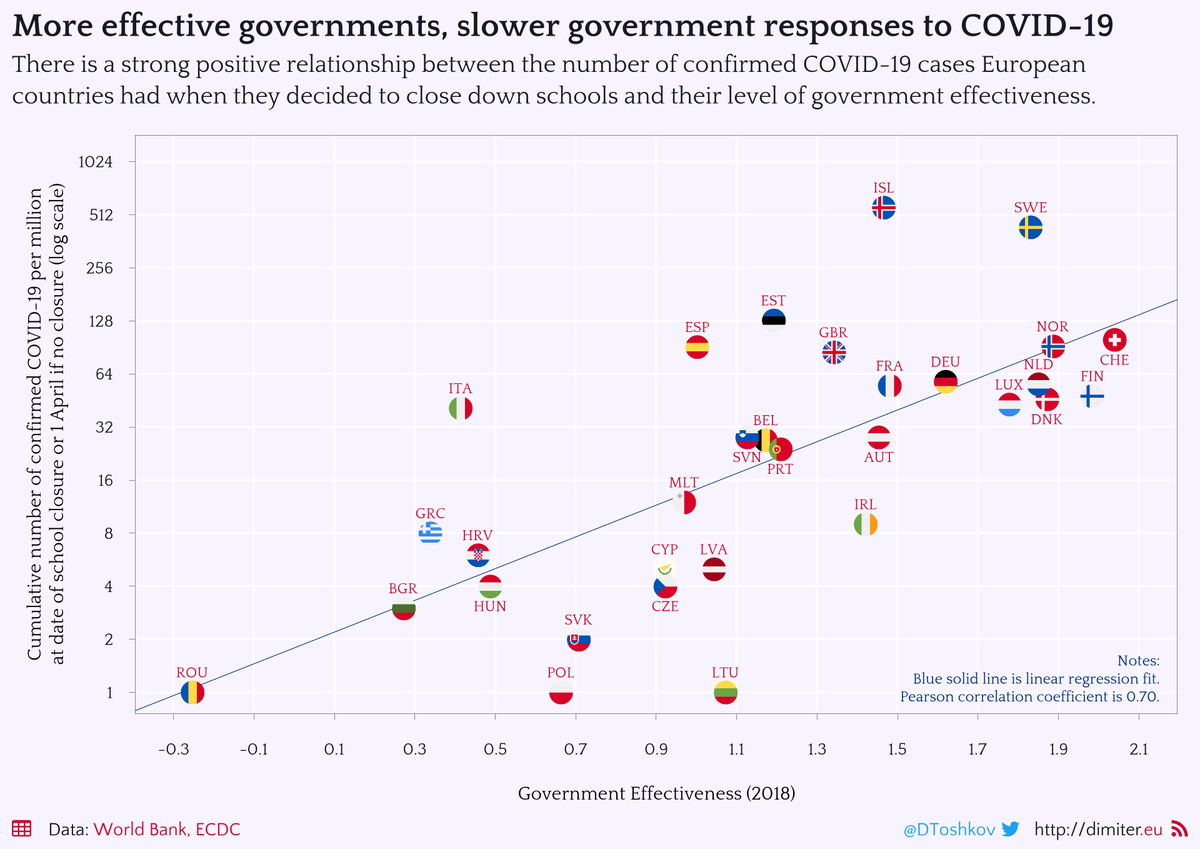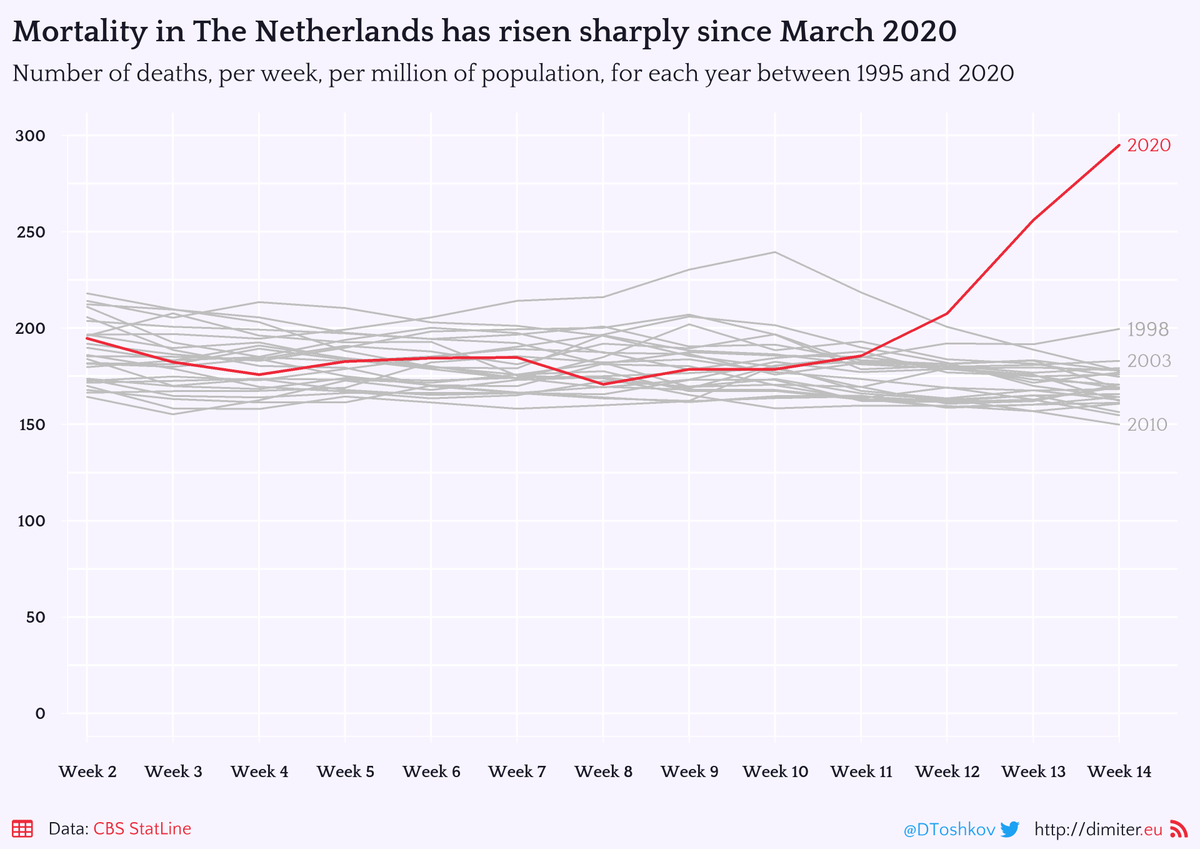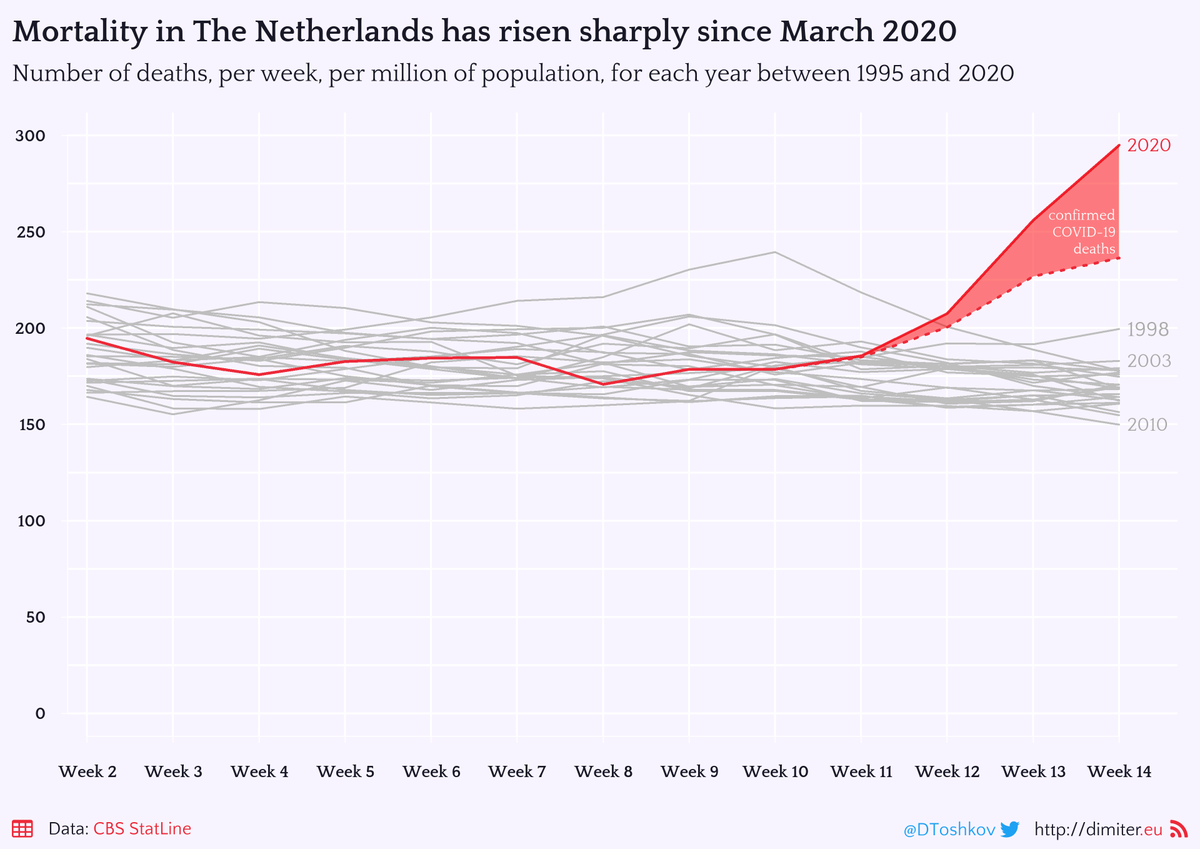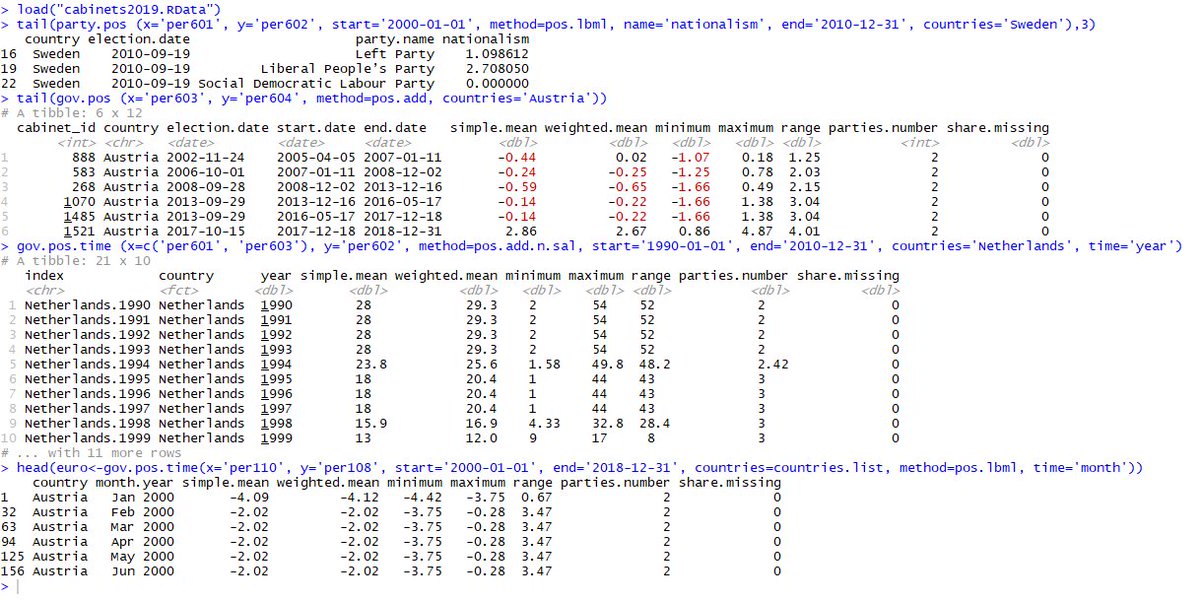
#eu, #migration, public policy, #bigdata (& small), research methods & design, #dataviz, politics, public opinion, #bureaucracy @PA_UniLeiden former@EuropeanUni
How to get URL link on X (Twitter) App


 (2) Countries with higher aggregate freedom scores have been slower in closing schools and imposing national lockdowns
(2) Countries with higher aggregate freedom scores have been slower in closing schools and imposing national lockdowns 

 Taking into account the number of confirmed COVID-19 deaths, the total number of deaths in Week 14 of 2020 is 40% higher than the average of the period 1995-2019 for the same week.
Taking into account the number of confirmed COVID-19 deaths, the total number of deaths in Week 14 of 2020 is 40% higher than the average of the period 1995-2019 for the same week. 


